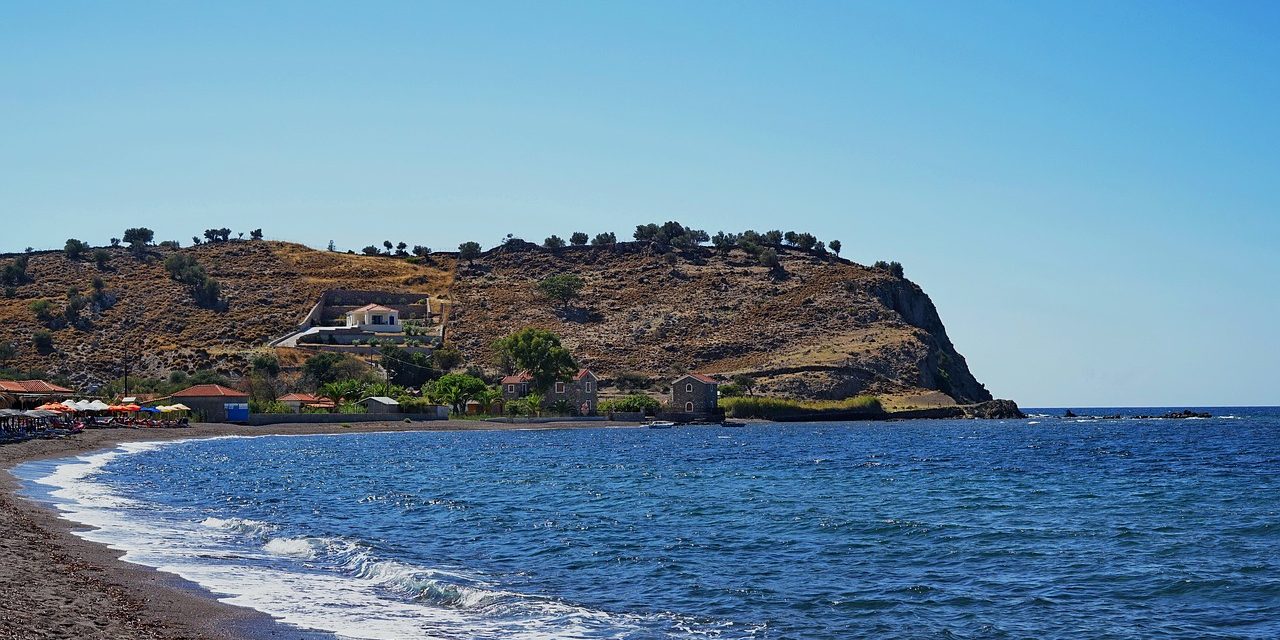by Sharon Henslee
In the summer of 2018, I had the opportunity to travel to Greece, specifically to the island of Lesvos, to volunteer with a non-governmental organization (NGO) that serves Syrian, Iraqi, and Pakistani refugees fleeing the violence in Syria. Lesvos, being the easternmost Greek island, is only about 10 km from the Turkish border. Because of its geographic proximity, the island was receiving many refugees who risked the journey by boat from Turkey.
The vessels could best be described as small, round rubber inflatables or dinghies which were always in the danger of capsizing on rough seas because they were overloaded. Many refugees were lost at sea and drowned. Others were picked up by the Coast Guard and sent back. Refugees on any boat that reached the shores of Lesvos were allowed to stay. The fate of the passengers was Camp Moria, an overcrowded and not so sanitary camp, considered by many to be the worst refugee camp in Greece. Although originally organized for only 2,000 people, it now contains over 7,000.
The NGO that I was working with provided for women and their children in the camp. One of the tasks was boat spotting with binoculars on the beach at night, searching for refugee boats arriving by cover of night. Services included showers, food distribution to families, and for all those interested, basic English language classes.
At the time I arrived in Lesvos, a few of the talented volunteers were attempting to put together a basic idea of how we wanted to approach teaching English classes. The consensus was to emphasize “survival English.” The improvised curriculum entailed a list of 500 essential English words: pronouns, colors, numbers, days, months, and dates. Some very basic grammar forms were included, the conjugation of frequent verbs, and basic prepositions of space and time. The level of English knowledge of each refugee varied, but given that the course focused only on the basics, everyone was able to learn and help each other.
In keeping with the refugees’ culture, there were separate classes for men and women. Classes were held outdoors, chairs circled around a table. You could say that the “classroom” was very nice, in that it was early summertime in Greece with tables arranged by the sea. Instructors set up an easel with white paper. Having color markers felt like a small luxury. The refugee students were eager to learn. They attempted to convey their personal histories and struggles, which was educational to the volunteers as well.
The organization ran a “coffee shop” which managed to become a bright spot in the depressing atmosphere of the camp and provided a space for good conversations. The NGO rented an empty street front property in Mytilini, the capital city of Lesvos, where they installed comfortable seating, a few computers, and games. They held a movie night once a week and served coffee and tea to the refugees who could arrange their transportation to the shop. On occasion, some English classes were held there as well. The methodology was simple; we just talked and listened to each other to practice conversational English.
The fate of the thousands of refugees in Camp Moria remains unresolved. Some may be granted asylum in Greece, but others will be sent back to Turkey. The rules, as well as refugees’ circumstances, are complex.
With my short time on the island – a fast two weeks, I did not get to see the learners’ English training come to full fruition, but I did experience the appreciation and enjoyment on the faces of my students, which made the entire effort truly worth it.
Sharon Henslee, a graduate student in TESOL in the Missouri State University English Department, has a taste for adventure and a passion for history, cultures, languages, and teaching. She taught English in Greece to Syrian refugees in the summer of 2018.







